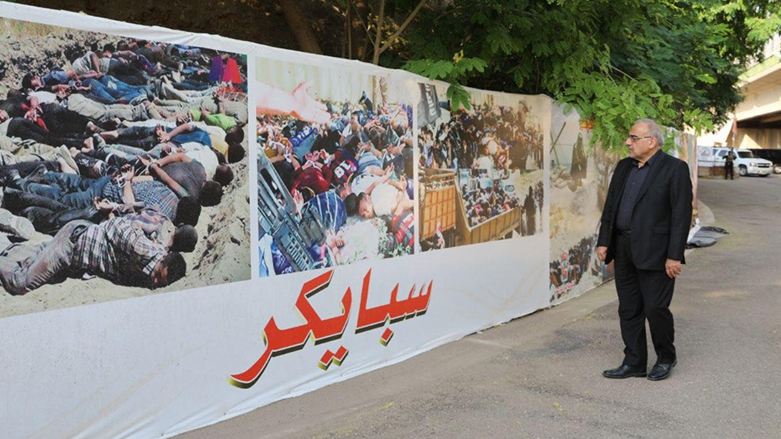Iraqi PM visits site of infamous Speicher massacre, vows to track down ISIS
Iraqi Prime Minister Adil Abdul-Mahdi vowed on Saturday that his nation's armed forces would aggressively pursue Islamic State militants wherever they remain in the country.

ERBIL (Kurdistan 24) – Iraqi Prime Minister Adil Abdul-Mahdi vowed on Saturday that his nation's armed forces would aggressively pursue Islamic State militants wherever they remain in the country.
He made the comments during a dawn visit to the site of the grizzly 2014 mass killing known as the Speicher massacre, named after the military camp in the province of Salahuddin where it took place.
"We will not allow the defeated to catch their breath and our forces pursue them in the deserts," read a statement released by Abdul-Mahdi's office. He continued, "They will not have a safe place in Iraq."
It was the prime minister's first visit to Camp Speicher since taking office late last year.
After occupying much of northern and western of Iraq, the terrorist organization shocked the nation on June 12, 2014, by killing over 1,500 cadets and other personnel at the camp, being used then as a military academy.
In video footage released online by the group, gunmen were seen executing captives with a single, close-range shot to the head before dumping their bodies into the Tigris River or into shallow graves.
Two years later, the government of Iraq announced they had discovered the bodies of more than 1,000 victims after uncovering mass graves in Tikrit.
At least fifty suspects have been convicted of participating in the mass murder and Iraqi courts have handed them death sentences. Iraqi authorities carried out the execution of 36 in a single day in August 2016. Two additional suspects were arrested in Finland in late 2015, identified from videos released by the Islamic State.
Although Iraq declared military defeat over the Islamic State in December 2017, the terrorist group continues to carry out insurgent attacks in formerly liberated areas, like Mosul, as well as even places it never controlled, like the nation’s capital of Baghdad.